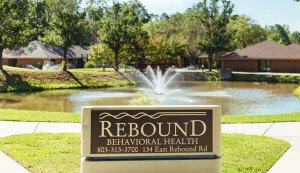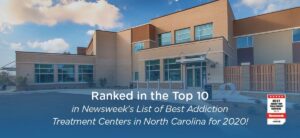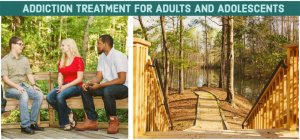Ritalin Addiction, Abuse, And Treatment
Understanding Ritalin
Ritalin is a Methylphenidate, which is a Central Nervous System (CNS) Stimulant. Methylphenidates have effects and pharmacological uses similar to Amphetamines and Cocaine.
Ritalin comes in tablets and capsules and is mostly prescribed to children and adults for attention deficit hyperactivity disorder (ADHD) or narcolepsy. It comes in both sustained-release and extended-release compounds. When used according to a prescription by properly diagnosed individuals, Ritalin has a calming effect and helps them focus on tasks. There is widespread agreement that Ritalin, when taken as prescribed and intended, is a comparatively safe drug.
Although it has demonstrated significant efficacy in treating ADHD, Ritalin also comes with high abuse potential. During the surge of Ritalin prescriptions throughout the 1990s, there was a consequent rise in abuse. Ritalin is especially dangerous as a recreational drug both because recreational users typically take much larger doses than what would be prescribed and because recreational users typically crush the pills and either snort or inject them, delivering the medication to the body much more quickly. If you or a family member is struggling with addiction, reach out to a treatment provider today.
Online Addiction Counseling
Get professional help from an online addiction and mental health counselor from BetterHelp.
- Access to Therapy 24/7
- Easy Online Scheduling
- 20,000+ Licensed Therapists
Paid Advertising. We may receive advertising fees if you follow links to the BetterHelp site.
Ritalin Abuse And Effects
Like Amphetamines, which are also known as “Speed” or “Uppers,” Ritalin increases alertness and concentration. It is often abused by professionals, students, and athletes to increase productivity. It is listed as a Schedule II federally controlled substance because of its high potential for abuse.
Consumption of Methylphenidates like Ritalin is markedly higher in the United States than in other countries. This is likely due to how accessible they are. Many students who are prescribed Ritalin have given or sold their medication to other students to help them study. Students may also take the drug simply to feel high.
The effects of Ritalin usually last between 3 and 4 hours. The half-life of the drug (how long it takes for half of the drug to work its way through the body) is highly variable and dependent on numerous factors. For children, it is approximately 2.5 hours. For adults, it is approximately 3.5 hours. Depending on how long the user has taken Ritalin, among other factors, the half-life can reach 7.7 hours.
Those who abuse Ritalin typically do so because they are trying to exacerbate the side effects of the drug, including a euphoria that is not generally found at therapeutic doses. Individuals with an ADHD diagnosis do not typically experience significantly increased energy levels when taking Ritalin, but non-ADHD individuals often do because the drug affects them differently. People abusing the drug through inappropriate doses, use without a prescription, or snorting or injecting it, run the risk of negative side effects. These may include:
- Suppressed appetite
- Anxiety
- Chest pain
- Changes in blood pressure
- Overdose
- Confusion
- Nausea
- Vomiting
- Hallucinations
- Seizures
- Headache
- Agitation
- Insomnia
- Paranoia
- Fatigue
- Altered heart rate
- Respiratory depression
- Nervousness
- Hypersensitivity
- Panic attacks
Side effects can vary depending on whether the individual has a diagnosis of ADHD or not. When someone takes a medication that they are not prescribed, the negative side effects can be different and/or more intense.
Those with mood disorders, like bipolar disorder, who abuse Ritalin may exhibit even worse symptoms and behavior. This is because Ritalin is a CNS Stimulant that can trigger manic episodes in some individuals. Therefore, it is important to talk with a physician before beginning to take any Stimulant medications.
Check if my insurance covers rehab
Addiction Center is not affiliated with any insurance.
Signs Of A Ritalin Addiction
Just like other Stimulants, Ritalin increases the levels of dopamine reaching neuron receptors in the brain. Dopamine is a naturally occurring chemical in the brain essential for activation of the brain’s reward system. The brain’s reward system reinforces behavior that activates dopamine production. Some people with ADHD have too many dopamine transporters, which results in low levels of dopamine in the brain. Ritalin blocks these transporters, keeping dopamine levels at a healthy level and increasing attention, focus, and impulse control. However, Ritalin influences a much higher amount of dopamine to reach receptors in the brain in those who don’t have ADHD. Taking Ritalin can become a learned behavior after repeated abuse, spurring on the compulsion to take the drug regardless of consequences.
A telltale sign of a problem is continuing to use Ritalin despite wanting to quit. If someone recognizes that there are severe negative consequences associated with using Ritalin — such as strained relationships and/or an unmanageably high price tag associated with use of the drug — but still can’t quit on their own, an addiction is likely present. The Diagnostic and Statistical Manual of Mental Disorders outlines criteria of addiction. Learn how professionals diagnose Ritalin addiction today.
Other signs of an addiction include:
- Taking Ritalin in larger amounts or for longer than prescribed
- Spending a lot of time getting, using, or recovering from use of Ritalin
- Experiencing cravings and urges to use Ritalin
- Neglecting responsibilities at home, work, or school
- Continuing to use Ritalin, even when it causes problems in relationships
- Giving up important social, occupational, or recreational activities because of Ritalin use
- Using Ritalin again and again, even when it puts the user in danger
- Continuing to use Ritalin, even when the user knows they have a physical or psychological problem
- Needing more Ritalin to get the effect the user wants (tolerance)
- Experiencing withdrawal symptoms due to sudden cessation or rapid reduction of dose
- Experiencing sudden changes in mood, such as mood swings
- Isolating oneself from family or friends
Looking for a place to start?
Join the thousands of people that have called a treatment provider for rehab information.
Free and confidential
Available 24/7
Access to professional treatment
Treatment For A Ritalin Addiction
The course of treatment may be different depending on when the user began taking Ritalin. Those prescribed the drug at a young age often have a harder time overcoming a physical and mental dependence on it; most of their young life may have been spent taking the drug. Treatment programs for Ritalin addiction should target the underlying behaviors and thought processes that cause Ritalin use — whether it’s merely a habit, a recreational activity, or rooted in a desire to excel in athletics or academia.
Treatment programs for Ritalin addiction often incorporate behavioral therapies, such as cognitive behavioral therapy, in order for the individual to learn how to manage symptoms of ADHD without medication. There is also an alternate, non-addicting ADHD medication, called Strattera, which is often prescribed to individuals who suffer from ADHD and addiction. This can be a healthy alternative to using Ritalin or other Stimulants. The combination of psychotherapy with non-abusable medications can be very beneficial in assisting the individual with learning healthy coping skills and managing ADHD symptoms.

Break free from addiction.
You have options. Talk about them with a treatment provider today.
Benefits Of Ritalin Addiction Treatment
There are many benefits of receiving treatment for a Ritalin addiction, including:
- Encouragement and support from others who are facing the same types of challenges
- The ability to safely talk about and process personal experiences with a therapist who can help explore the root causes of the addiction
- The ability to participate in family therapy and work on improving personal relationships
- Education on the disease of addiction
- Knowledge of healthy coping skills, including relapse prevention strategies, and the ability to practice implementing them in a safe environment
- The ability to take the time needed to truly invest in oneself and improve physical and mental health
Ritalin Abuse Statistics
16
percent
Over 16% of college students have taken Methylphenidates, such as Ritalin, for recreational purposes.
85
percent
The United States produces and consumes approximately 85% of the world’s supply of Ritalin.
5.9
million
Approximately 5.9 million children have been diagnosed with ADHD, for which the leading treatment is a Ritalin prescription.
Getting over any addiction isn’t easy. Repeated use of a drug will lead to a dependence on it, spurring withdrawal symptoms when stopping. Withdrawal symptoms, such as depression and fatigue, can be serious and necessitate a reputable detox program.
A Successful Recovery
Battling the physical side of an addiction to Ritalin is only part of recovery. To continue a successful recovery, you will need the support of others. Support groups and behavioral therapy have helped countless people beat their addictions. Contact a treatment provider to get help taking back control of your life.
Published:
Author
Jeffrey Juergens

-
Jeffrey Juergens earned his Bachelor’s and Juris Doctor from the University of Florida. Jeffrey’s desire to help others led him to focus on economic and social development and policy making. After graduation, he decided to pursue his passion of writing and editing. Jeffrey’s mission is to educate and inform the public on addiction issues and help those in need of treatment find the best option for them.
- More from Jeffrey Juergens
Reviewed by Certified Addiction Professional:
Theresa Parisi

Theresa Parisi is a Certified Addiction Professional (CAP), Certified Behavioral Health Case Manager (CBHCM), and International Certified Alcohol and Drug Counselor (ICADC) with over 12 years of experience in the addiction treatment field.
- More from Theresa Parisi
Sources


Recovery Starts Today
Call Now For Addiction Support



Rebound Behavioral Health Hospital
Lancaster , SC




Wilmington Treatment Center
Wilmington , NC

Recovery Centers of America Capital Region
Waldorf , MD

Village Behavioral Health Treatment Center
Louisville , TN

Recovery Unplugged – Harrison House of Northern Virginia
Annandale , VA

New Hope Healthcare Institute
Knoxville , TN

New Hope Healthcare – Teen Rehab
Knoxville , TN

Blue Ridge Mountain Recovery Center
Ball Ground , GA


Georgetown Behavioral Hospital
Georgetown , OH

Newport Academy – Teen Rehab Center
Atlanta , GA